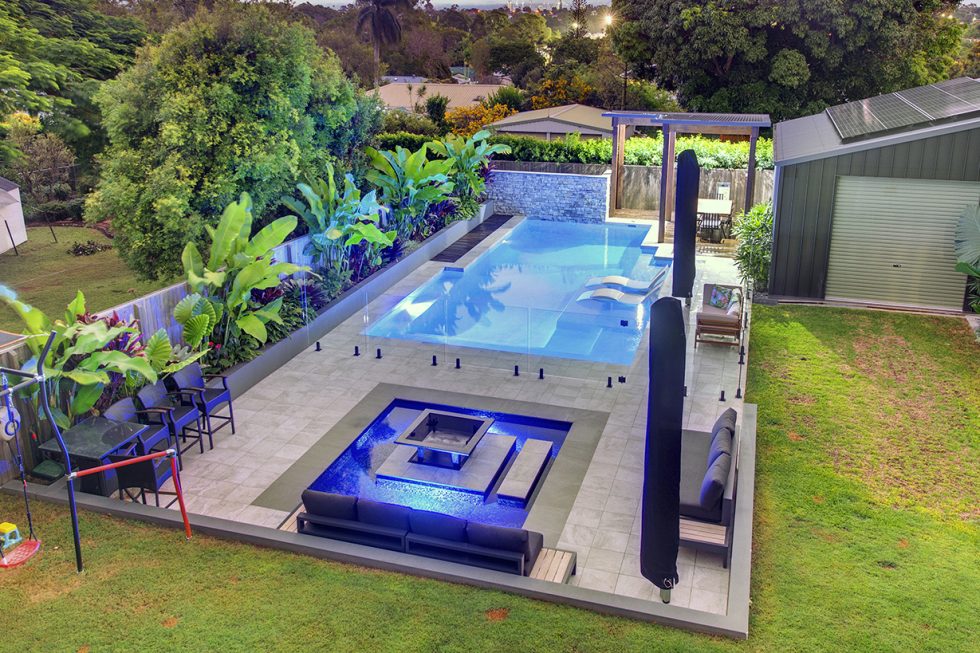Understanding the Role of a Pool Contractor
At the core of every successful pool project is a reliable and experienced pool contractor. These professionals specialize in the design, construction, and sometimes the maintenance of swimming pools. They handle the logistics, technicalities, and permits required to turn your dream into reality. From small plunge pools to expansive infinity designs, they help clients navigate choices in materials, styles, filtration systems, safety features, and budget constraints.
Their work doesn’t stop at digging a hole and filling it with water. The best contractors combine engineering precision with creative design, ensuring that the final product is structurally sound, aesthetically pleasing, and environmentally efficient.
The Phases of Pool Construction
While each pool project is unique, they typically follow a multi-phase process that includes planning, excavation, installation, finishing, and final inspection.
1. Planning and Design
This is where vision meets feasibility. The contractor assesses the site’s dimensions, topography, soil type, and existing structures. Discussions with the homeowner clarify preferences in terms of pool shape, depth, tile choices, water features, and lighting.
Design software may be used to create 3D models, allowing homeowners to visualize how their pool will integrate with the rest of their property. Budget estimation and timelines are also discussed at this stage.
2. Permits and Approvals
A reputable Pool Contractor is well-versed in local building codes and regulations. They handle the necessary permits, zoning restrictions, and safety requirements. This ensures the construction is legal and up to code, helping homeowners avoid hefty fines or costly revisions later.
3. Excavation and Framing
Once plans are approved, the contractor begins excavation. Heavy machinery is brought in to dig the designated area, and steel reinforcement (rebar) is installed to form the pool’s skeleton. This stage sets the foundation for structural integrity and longevity.
4. Plumbing and Electrical Installation
Behind every sparkling pool is a complex network of plumbing lines, drainage systems, pumps, filters, and sometimes heaters or automation systems. Electrical wiring is also installed for lighting and powered features like waterfalls or spas. Ensuring these systems are correctly configured is vital for safety and performance.
5. Concrete, Gunite, or Fiberglass Installation
Depending on the pool type, materials are applied to form the pool shell. Concrete and gunite pools offer high customization, while fiberglass options come pre-molded. Each has its advantages in terms of durability, cost, and design flexibility.
6. Finishing Touches
After curing and sealing, the pool interior is finished with plaster, tile, or pebble surfaces. Coping, decking, landscaping, and fencing are added to complete the surrounding environment. This is where the pool begins to resemble the luxurious retreat envisioned at the start.
7. Filling and Testing
The final stage involves filling the pool, testing the water chemistry, ensuring the pump and filtration systems work properly, and performing safety checks. Many contractors also offer homeowner orientation sessions to explain the maintenance and operation of the new pool.
Custom Features and Modern Trends
Today’s pools are more than rectangular holes in the ground. With the advancement in design and technology, a Pool Contractor can integrate a wide array of custom features that elevate the overall experience.
- Infinity Edges: For homes with scenic views, this gives the illusion that water extends endlessly into the horizon.
- Tanning Ledges: Shallow platforms ideal for lounging or for children to play safely.
- Swim-Up Bars and Built-In Seating: Popular in resort-style designs, these enhance social interaction and leisure.
- LED Lighting Systems: Allow pools to glow in various colors at night, creating mood and ambiance.
- Waterfalls and Fountains: Add movement and a tranquil soundscape to the environment.
- Smart Automation: Control lights, temperature, and water features via smartphone or voice assistants.
- Eco-Friendly Features: Solar heating, variable speed pumps, and saltwater systems reduce environmental impact and operating costs.
Choosing the Right Pool Contractor
Finding the right professional can be the difference between a seamless project and a frustrating ordeal. Here are key factors to consider:
- Licensing and Insurance: Always choose a licensed contractor with liability and workers’ compensation insurance.
- Portfolio and References: Review previous work and speak with past clients about their experience.
- Transparent Pricing: Clear contracts that outline labor, materials, timelines, and payment schedules help avoid misunderstandings.
- Warranty and Aftercare: A quality contractor stands by their work with warranties and offers maintenance services or guidance.
- Communication: A good contractor communicates regularly, updates on progress, and is responsive to concerns.
The Long-Term Value of a Professionally Built Pool
A well-designed and professionally constructed pool can significantly boost a home’s value. It enhances curb appeal and marketability, especially in regions where outdoor living is a year-round lifestyle. Beyond monetary value, it offers intangible benefits: a healthier lifestyle, stress relief, improved family interaction, and a reason to stay home and enjoy.
Moreover, a professionally built pool requires fewer repairs and is more energy-efficient in the long run. The systems are better integrated, materials are more durable, and design choices are made with foresight. Homeowners save time, money, and frustration by doing it right the first time.
Common Challenges and How Contractors Solve Them
Even with the best planning, pool construction can face challenges. Unforeseen underground obstacles like rock or poor soil, fluctuating weather conditions, or supply chain delays can impact timelines. A seasoned contractor anticipates potential issues and adjusts with minimal disruption.
Waterproofing, drainage, and elevation adjustments are common concerns, especially on sloped properties. A good contractor brings experience in civil engineering and landscape design to address these effectively. They also coordinate with other professionals—electricians, plumbers, designers, and inspectors—to ensure the project flows smoothly.
Maintenance and Longevity
Once the pool is built, maintenance becomes the next priority. Many contractors offer ongoing service packages or connect homeowners with trusted maintenance partners. Regular tasks include balancing water chemistry, cleaning filters, skimming debris, and inspecting pumps.
Automated systems, robotic cleaners, and smart monitoring tools have made maintenance easier, but understanding the basics is essential. A well-maintained pool can last decades, offering years of enjoyment and adding long-term value.
Final Thoughts
Building a swimming pool is an investment—not only in property but in lifestyle. It’s a commitment to relaxation, recreation, and family moments. The process may seem overwhelming at first, but with the right Pool Contractor, it becomes a creative and rewarding experience.
By bringing technical expertise, creative vision, and reliable project management, pool contractors play a vital role in turning dreams into backyard realities. Whether you’re envisioning a tranquil hideaway or a lively gathering spot, the journey begins with choosing a professional who understands your goals and has the skills to make them come to life.














